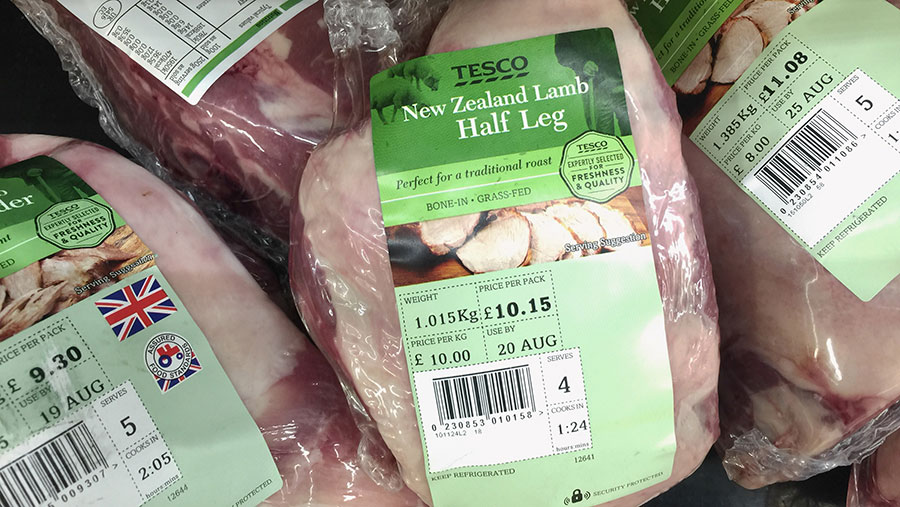Potential China spat could see more NZ meat imports
 © Tim Scrivener
© Tim Scrivener UK supermarket shelves are unlikely to be flooded with New Zealand beef and lamb in the immediate aftermath of this year’s free-trade deal, new AHDB analysis reveals.
But any changes to New Zealand’s dealings with China could see the country divert more beef, lamb and dairy exports to the UK, according to analysts.
Tensions are growing between the US and China over Taiwan, which carries the risk – especially in the long term – of trade being disrupted between China and other Western countries.
See also: Two-tier approach could protect UK’s high farming standards
New Zealand currently enjoys “lucrative” trading arrangements with China and other Asia Pacific countries that are “on its doorstep”, which it will continue to develop, the AHDB said.
Should China ban New Zealand lamb imports for any reason, economic modelling by the AHDB and Harper Adams University suggests New Zealand lamb exports to the UK could increase by 29,000t (69%).
An equivalent ban on beef by China could see New Zealand exports to the UK increase by 7,000t (830%).
Beef outlook
AHDB senior analyst Amandeep Kaur Purewal told the Farmers Weekly Podcast: “If the China market was closed to New Zealand, then there is the potential for 7,400t of beef to come in [to the UK].
“New Zealand would look to divert that beef to other countries. A lot of it would be going to the US, our model predicts, because there is greater market share there and the price they would get for it would be higher.”
For lamb, the modelling predicts New Zealand will increase its exports by diverting some of its existing exports (notably from China), coupled with a small increase in production.
A reduction of the current level of non-tariff barriers, in both directions, will lead to reduced costs for New Zealand exporters supplying the UK market. But if China banned New Zealand lamb imports, New Zealand lamb exports to the UK would increase by 29,000t (69%).
For dairy, AHDB predicts that the potential effect on the cheese and butter trade is much more subdued. From 2018 to 2020 only an average 0.1% of the UK’s dairy imports came from New Zealand.
Sarah Baker, AHDB economic strategist, said she was encouraged that for the first time, New Zealand had signed a chapter within the deal to ensure equivalence on animal welfare standards.
“I think working together to ensure there is no regression on any of the welfare standards in either country is a step forward,” she added.
‘Limited opportunities’
Nonetheless, there are “limited opportunities” for UK producers to export product to New Zealand, the modelling predicts.
“If you are going for the old, traditional names, or niche products for heritage value, such as Scotch whiskey, that might have some sort of value, but we’re not going to be competing on a commodity basis,” said Ms Purewal.
However, she said the UK-NZ trade deal could be a stepping stone towards greater trading opportunities for UK producers with countries in the Comprehensive and Progressive Agreement for Trans-Pacific Partnership.
